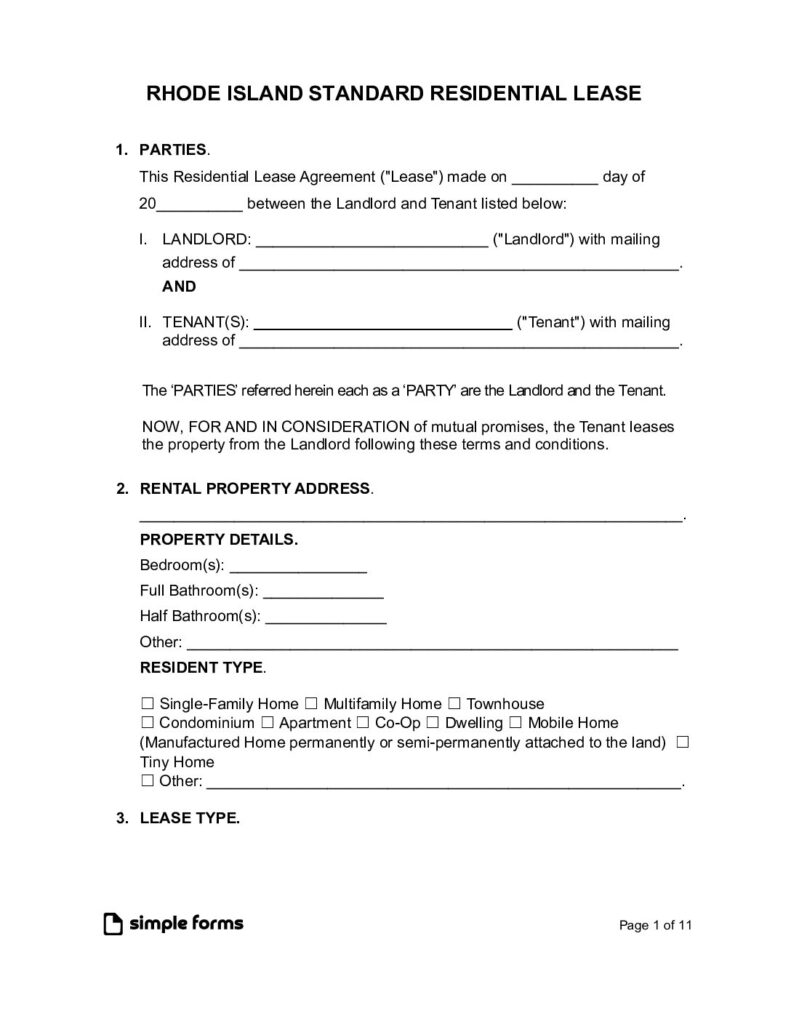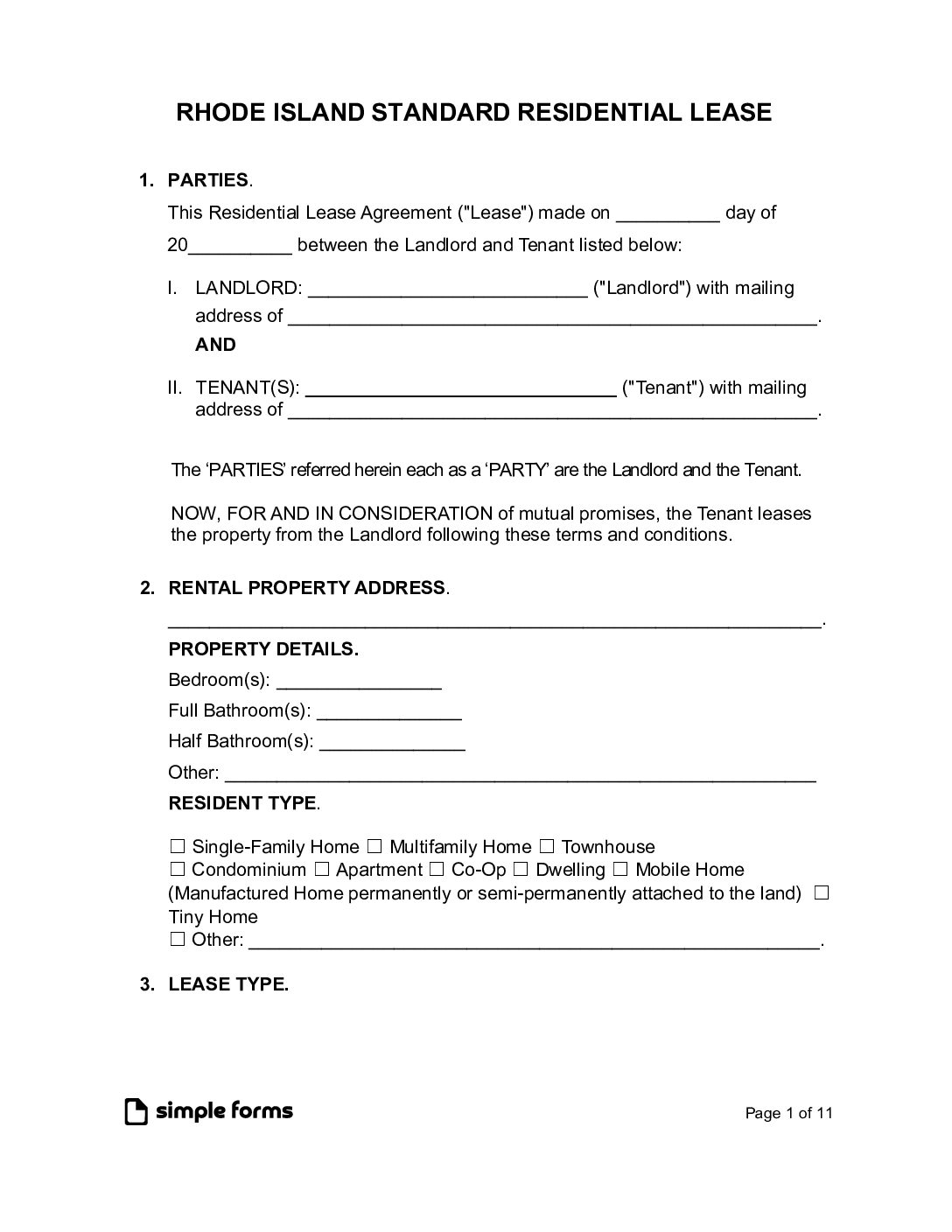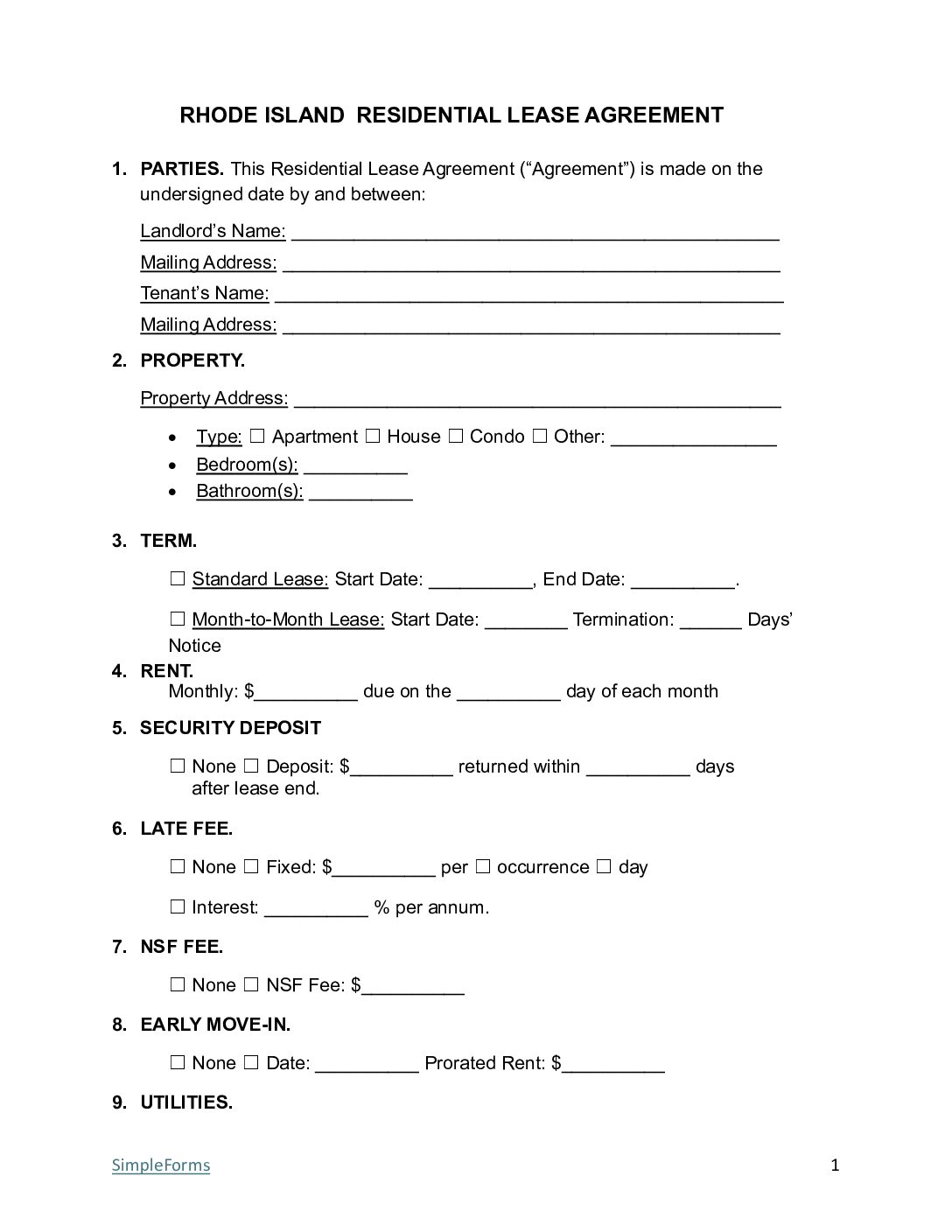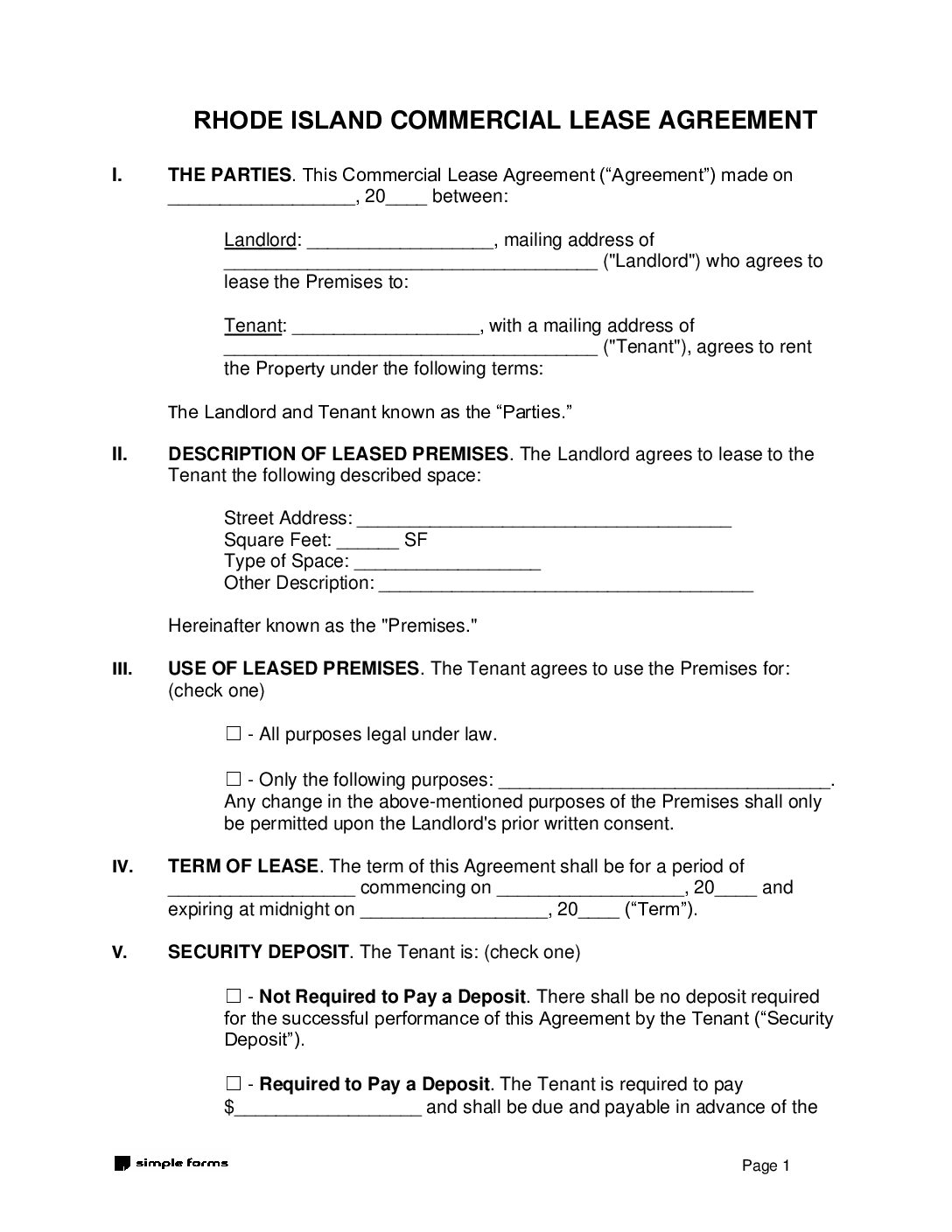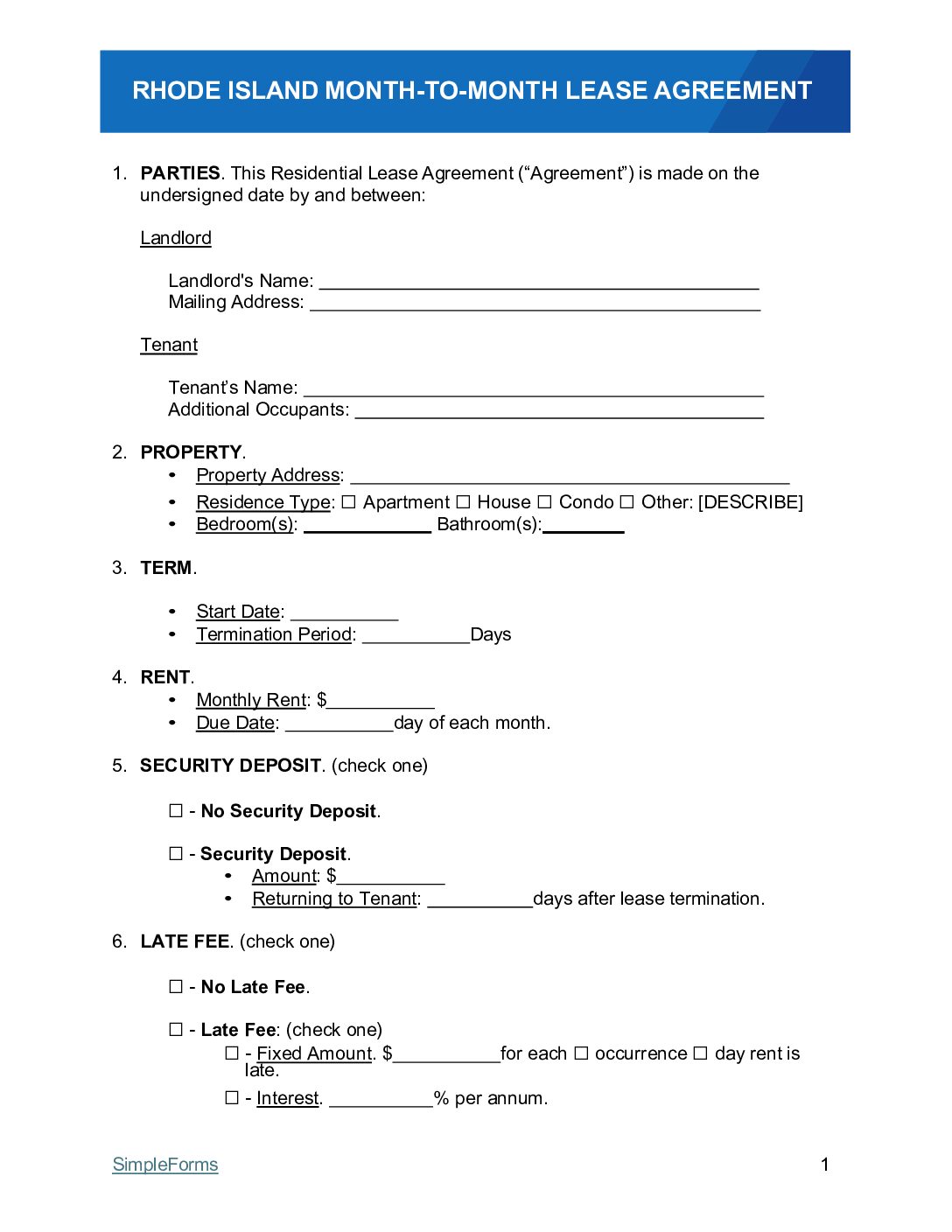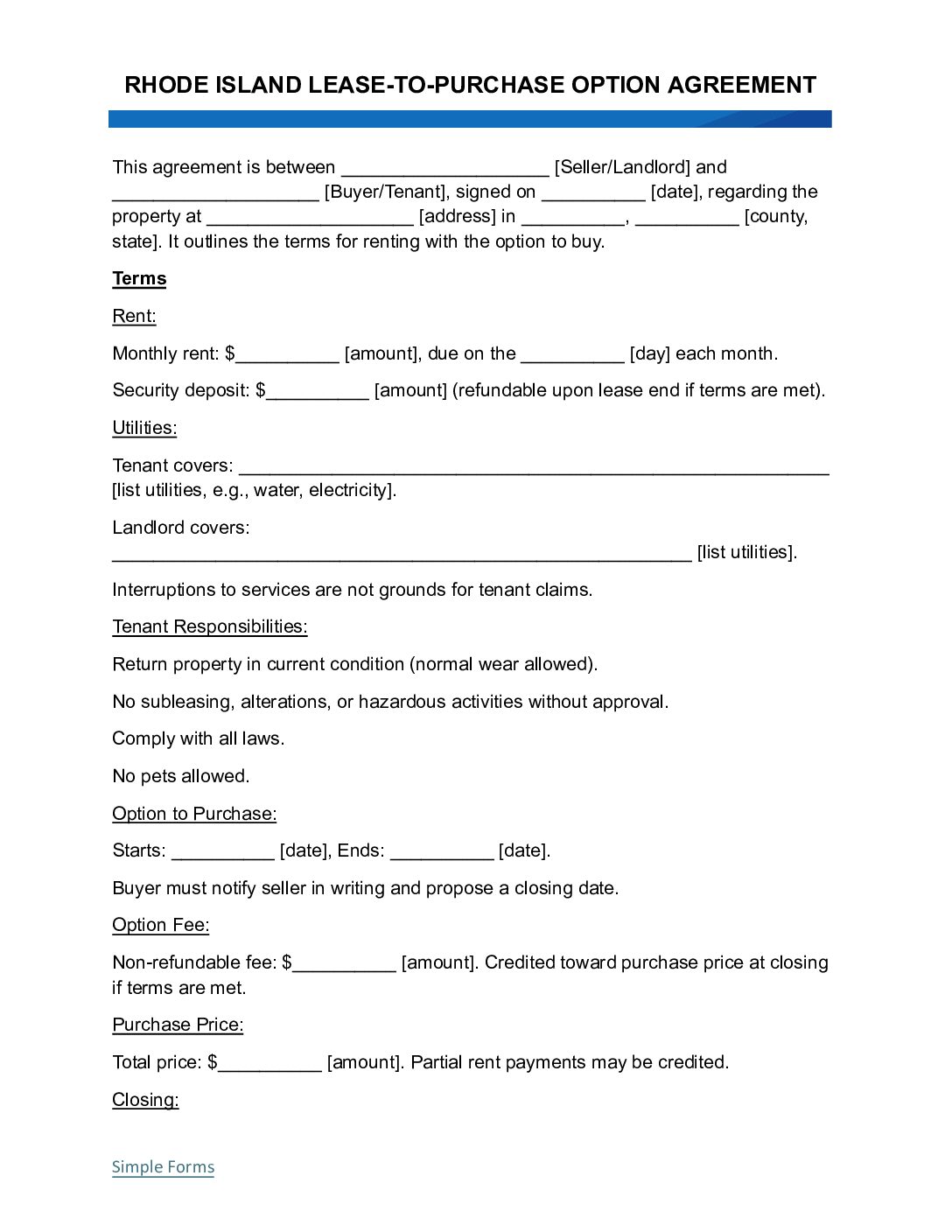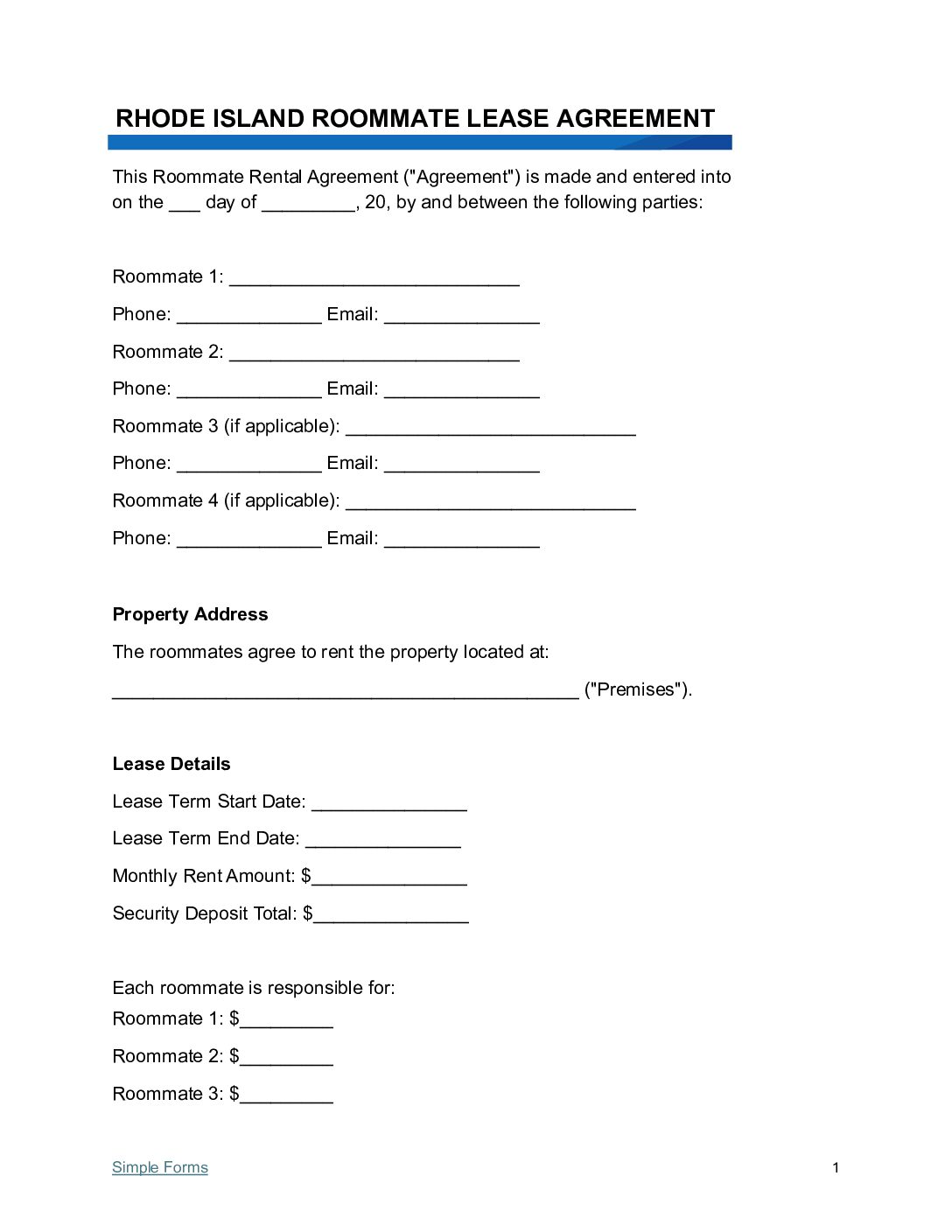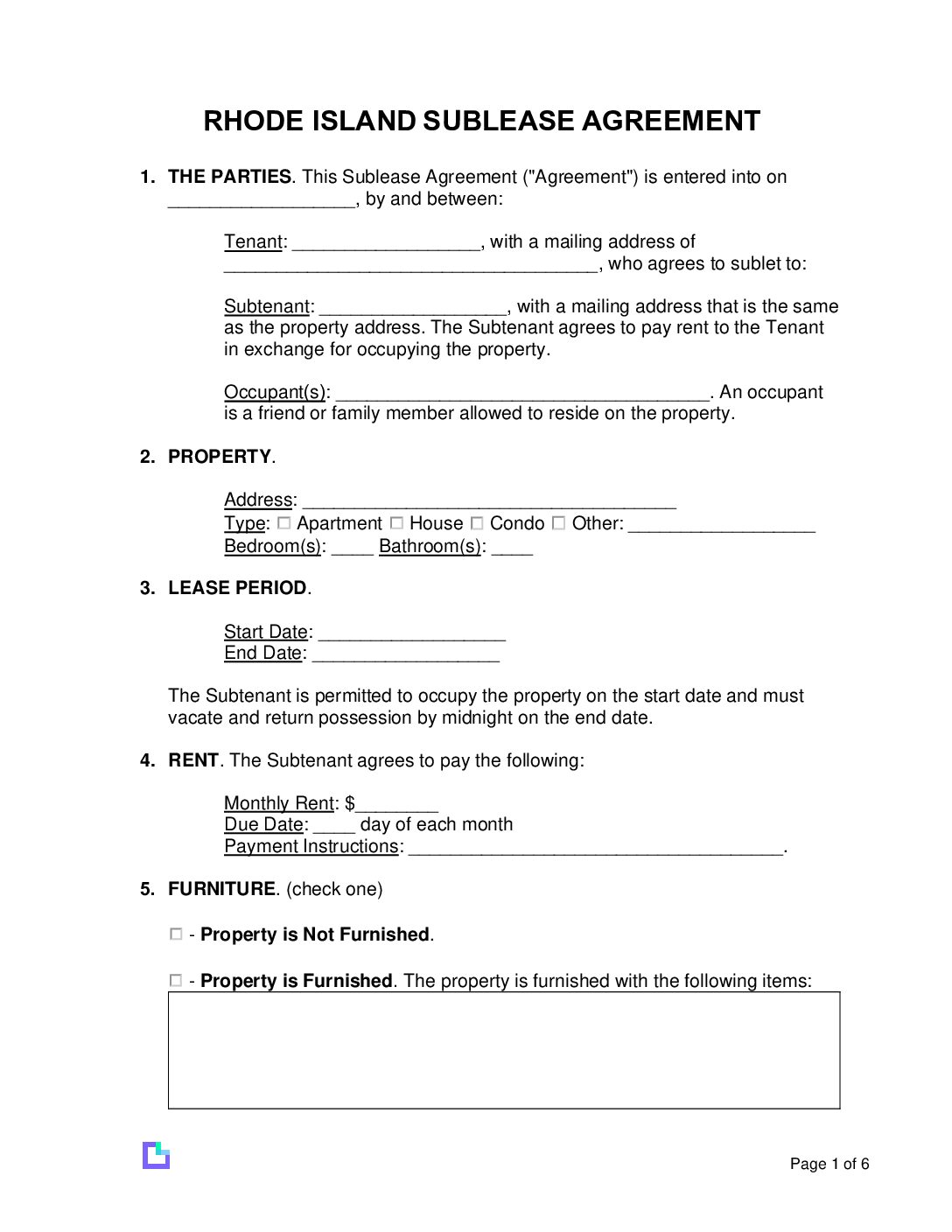Rhode Island Rental Application Form – Landlords and property owners use this form to run a background check and employment history on future tenants prior to signing the Rhode Island rental lease agreement document.
A rent receipt template confirms that a Tenant has paid rent in cash. The Landlord fills it out after payment, including the amount, payment method, and signature.
By Type (6)
| Rhode Island Residential Lease Agreement Template – Used for renting a property for personal living purposes. Download: PDF | Word (.docx) |
|
| Rhode Island Commercial Lease Agreement – Used for business purposes/renting space for a company to operate its business activities (retail, office, industrial). Download: PDF |
|
| Rhode Island Month-to-Month Lease Agreement – Also referred to as a month-to-month or “at-will” lease, this rental agreement has no fixed end date and automatically renews each month. Download: PDF | Word (.docx) |
|
| Rhode Island Rent-to-Own Lease Agreement – A lease that grants the tenant the option to buy the property before the lease term expires. Download: PDF | Word (.docx) |
|
| Rhode Island Room (Roommate) Lease Agreement – A contract between individuals sharing a rental property that outlines each roommate’s responsibilities, rent obligations, and shared living arrangements. Download: PDF | Word (.docx) |
|
| Rhode Island Sublease Agreement Template – This lease template allows a tenant to rent out all or part of their leased property to another person while remaining responsible to the landlord. Download: PDF | Word (.docx) |
What the Rhode Island Residential Lease Agreement Form Covers?
This agreement includes the following information for landlords and tenants in Rhode Island:
- Rhode Island Landlord-Tenant Act
- Security Deposit Law
- Lease Termination
- Landlord’s Access to the Property
- Rent Due Date and Late Fees
- Eviction Procedures
- Property Maintenance
- Required Disclosure Forms
- Tenant’s Right to Withhold Rent
Rhode Island Landlord-Tenant Act
The Rhode Island Residential Landlord and Tenant Act governs landlord and tenant responsibilities, rental agreements, security deposits, eviction procedures, tenant rights, and required disclosures.[1]
Security Deposit Laws
- Maximum Amount – Landlords can charge up to one month’s rent as a security deposit.
- Return Timeline – Security deposits must be returned within 20 days after the lease ends, along with an itemized list of deductions (if any).[2]
Lease Termination Rules for Landlords and Tenants
Required notice for lease termination is as follows:
- Yearly Lease: 30 days’ notice.
- Month-to-Month: 30 days’ notice.
- No Notice: If the rental unit poses immediate health or safety risks.[3]
Landlord’s Access to the Rental Property
Landlords must provide at least 48 hours’ notice before entering the property unless it’s an emergency.[4]
Rent Due Dates and Late Fees
- Grace Period – No grace period is mandated by law; it must be specified in the lease.
- Late Fees – Late fees are allowed but must be reasonable and outlined in the lease agreement.[5]
Eviction Procedures and Notices
- Notice to Quit – 5 days for nonpayment of rent; 20 days for lease violations.
- Eviction Lawsuit – Legal actions are initiated under “Summary Possession” in Rhode Island courts.[6]
Property Maintenance Requirements and Utilities
Landlords must make sure that the property is habitable and compliant with state health and safety codes. Utility responsibilities should be clearly outlined in the lease.[7]
Required Disclosure Forms
Landlords must disclose the following:
- Lead-Based Paint Disclosure Form – If the property was built before 1978, landlords must notify tenants about potential lead-based paint potential hazards, with the lead-based paint disclosure form.
- Code Violations – Landlords must disclose to tenants if there are any outstanding code violations against the property.
- Landlord/Owner Identification – Landlords must share the names of property managers, property owners, and anyone authorized to receive legal notices.
Tenant’s Right to Withhold Rent
Tenants can withhold rent if the property is uninhabitable. The tenant must notify the landlord and allow a reasonable time for repairs. If not resolved, tenants can repair the issue and deduct costs from rent.[8]
